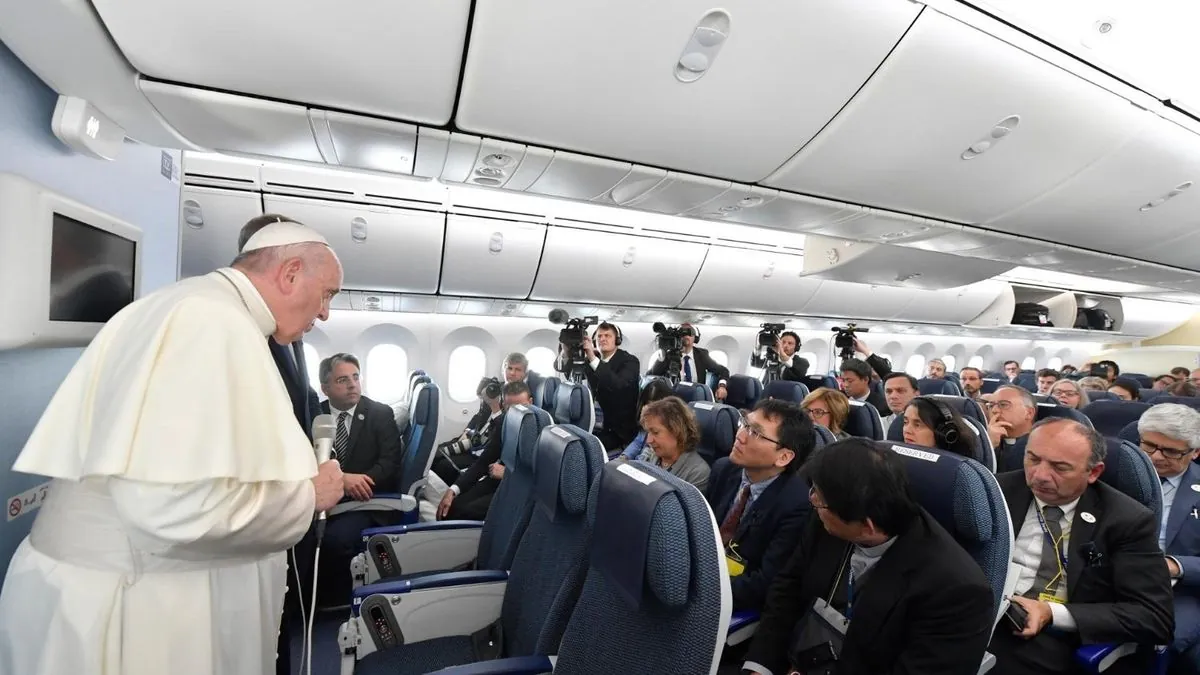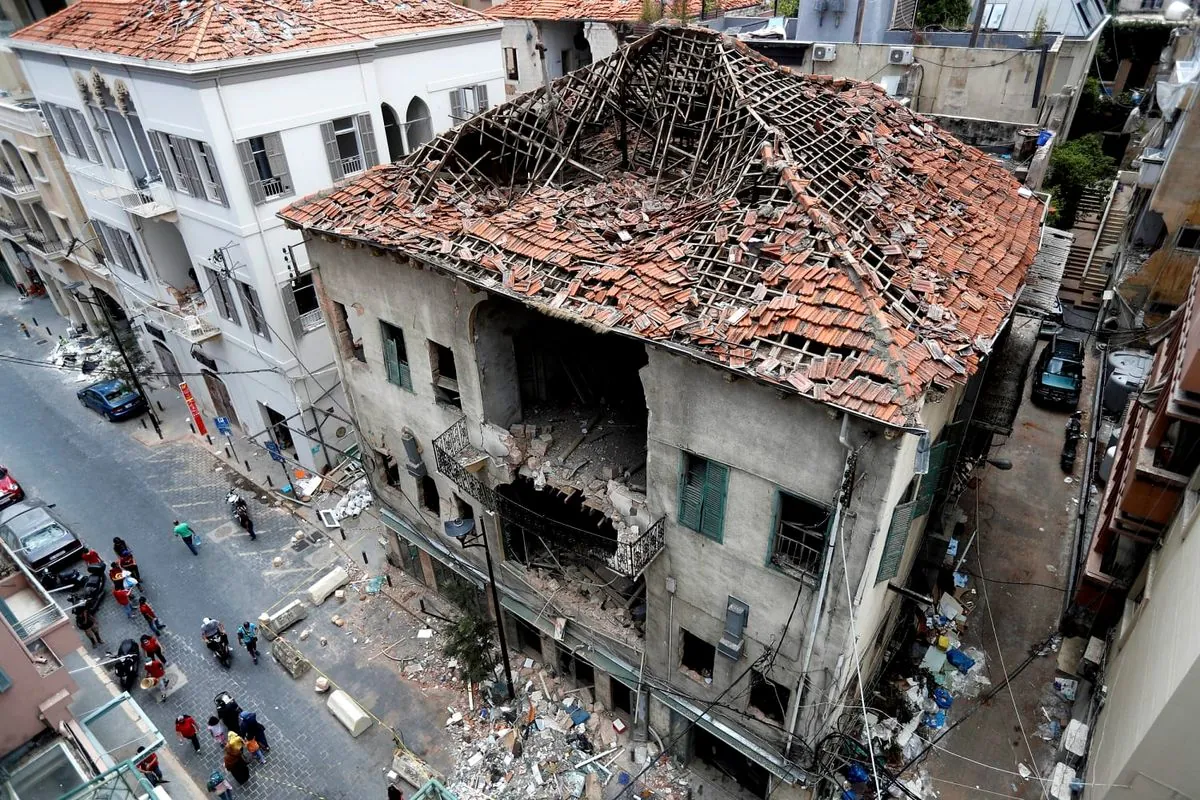Pope Francis Questions Morality of Disproportionate Military Actions
Pope Francis critiques excessive force in conflicts, emphasizing proportionality in warfare. His comments come amid ongoing tensions in the Middle East, as he maintains daily contact with Gaza's Catholic parish.

Pope Francis has recently addressed the issue of disproportionate military actions, particularly in the context of ongoing conflicts in the Middle East. Speaking to reporters during a flight from Belgium, the pontiff emphasized the importance of proportionality in warfare, a principle deeply rooted in international humanitarian law and Catholic theology.
The Pope's comments came in the wake of a significant event that occurred approximately five months ago. On April 26, 2024, a strike in Beirut resulted in the death of Hassan Nasrallah, a founding member of Hezbollah. This incident caused considerable damage to residential areas and claimed at least six other lives.
Without naming specific countries, Francis stated, "When there is something disproportionate, there is a dominating tendency that goes beyond morality." He added, "A country that does these things — and I'm talking about any country — in a superlative way, these are immoral actions."

The Pope's remarks reflect the Catholic Church's long-standing engagement with international diplomacy and its efforts to promote peace. As the leader of the world's smallest independent state, Francis has consistently advocated for dialogue and peaceful resolution of conflicts.
"Even if war itself is immoral, there are rules that indicate some morality. But when you don't do this ... you see the bad blood of these things."
The death of Nasrallah, who had been a dominant figure in Lebanese and Middle Eastern politics for over three decades, sent shockwaves throughout the region. Hezbollah, founded in 1985 in response to the Israeli occupation of southern Lebanon, has been a significant political and military force in the country.
In contrast to the Pope's cautious approach, U.S. President Joe Biden described the strike as a "measure of justice" for victims of Hezbollah's actions. This divergence in perspectives highlights the complex nature of international responses to the ongoing conflicts in the region.
Francis has attempted to maintain a balanced stance on the Israel-Hamas conflict, which escalated following the Hamas attack on Israel on October 7, 2023. He has consistently called for an immediate ceasefire, the release of hostages taken by Hamas, and the provision of humanitarian aid to Gaza.
The Pope's concern for the situation in Gaza is evident in his daily communication with the Catholic parish there. This small but historic Christian community in Gaza represents the broader humanitarian concerns in the conflict-ridden area.
As the leader of the Catholic Church, Francis has made several trips to the Middle East during his papacy, demonstrating his commitment to interfaith dialogue and peace in the region. His recent comments on proportionality in warfare echo the Church's centuries-old debates on the concept of "just war."
The ongoing Israel-Palestine conflict, with roots dating back to the early 20th century, continues to present challenges for international diplomacy. The Vatican, maintaining diplomatic relations with both Israel and Palestine, navigates these complexities while advocating for peace and dialogue.
In addressing these issues, Pope Francis draws on the Vatican's extensive diplomatic experience, with one of the oldest diplomatic corps in the world. His emphasis on proportionality and morality in warfare reflects not only Catholic teaching but also aligns with principles of international law and humanitarian concerns.
As global tensions persist, the Pope's voice remains a significant one in calling for restraint, dialogue, and humanitarian considerations in conflict zones. His consistent advocacy for peace and proportionality in military actions continues to influence international discourse on these critical issues.


































